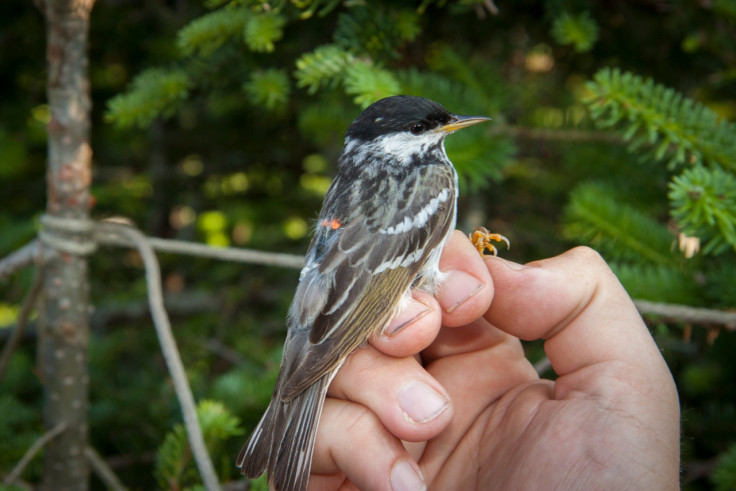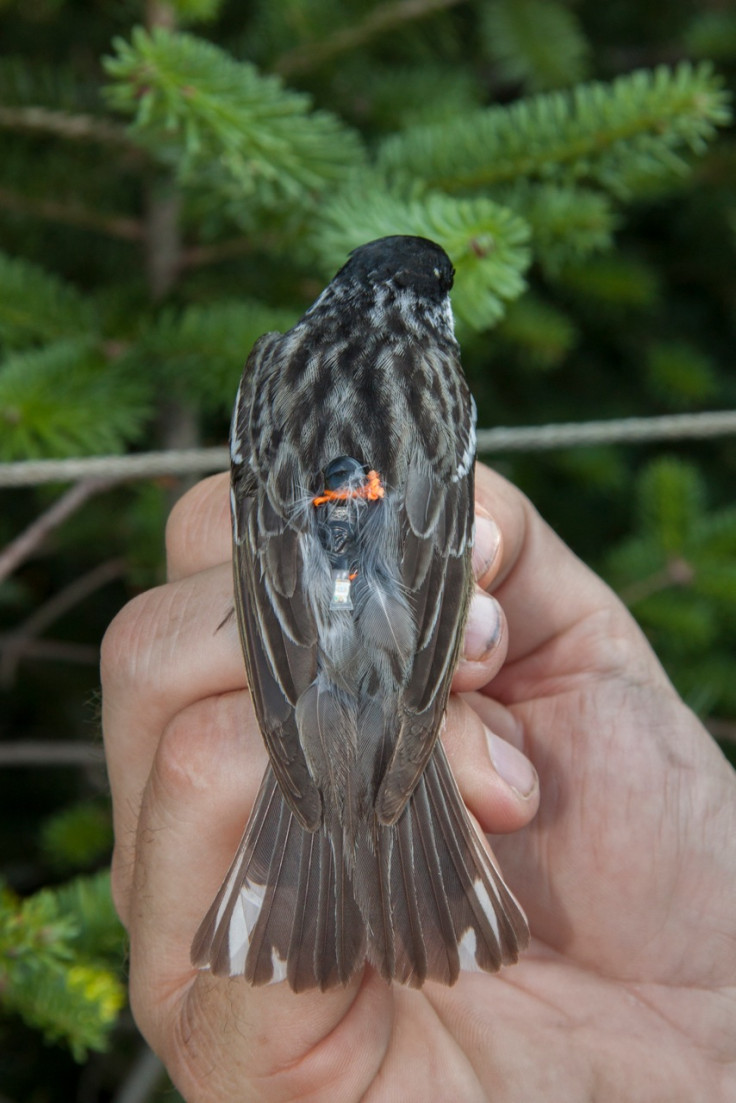Tiny songbird blackpoll warbler flies 1,500 miles nonstop across Atlantic Ocean

A tiny songbird flies for over 1,400 miles nonstop over the Atlantic Ocean – one of the longest longstop overwater flights recorded for this species.
The blackpoll warbler flies between 1,410 and 1,721 miles in just two to three days, going from New England and eastern Canada to Puerto Rico, Cuba and the Greater Antilles before heading on to northern Venezuela and Columbia.
Published in the journal Biology Letters, researchers from the University of Guelph in Ontario and the Vermont Centre for Ecostudies have found "irrefutable evidence" the birds make the first leg of the journey nonstop.
First author Bill DeLuca said: "For small songbirds, we are only just now beginning to understand the migratory routes that connect temperate breeding grounds to tropical wintering areas.
"We're really excited to report that this is one of the longest nonstop overwater flights ever recorded for a songbird, and finally confirms what has long been believed to be one of the most extraordinary migratory feats on the planet."
Songbirds are not known for their long trans-oceanic flights – most tend to take less risky, continental routes.
Before the flight, birds build up their fat stores, eating as much as possible and doubling their body mass in fat so they can keep going without food or water. If they have not built up their stores, they do not make the journey – only about half of the birds make it back north.

The authors said they do not know why the blackpoll warbler takes this perilous journey – only that they do it.
Using mini geolocators the size of a dime, they were able to attach the equipment to the 12g birds to trace their migration route: "When we accessed the locators, we saw the blackpolls' journey was indeed directly over the Atlantic. The distances travelled ranged from 2,270 to 2,770km," DeLuca said.
DeLuca said: "It was pretty thrilling to get the return birds back, because their migratory feat in itself is on the brink of impossibility. We worried that stacking one more tiny card against their success might result in them being unable to complete the migration.
"Many migratory songbirds, blackpolls included, are experiencing alarming population declines for a variety of reasons, if we can learn more about where these birds spend their time, particularly during the nonbreeding season, we can begin to examine and address what might be causing the declines."
© Copyright IBTimes 2025. All rights reserved.






















